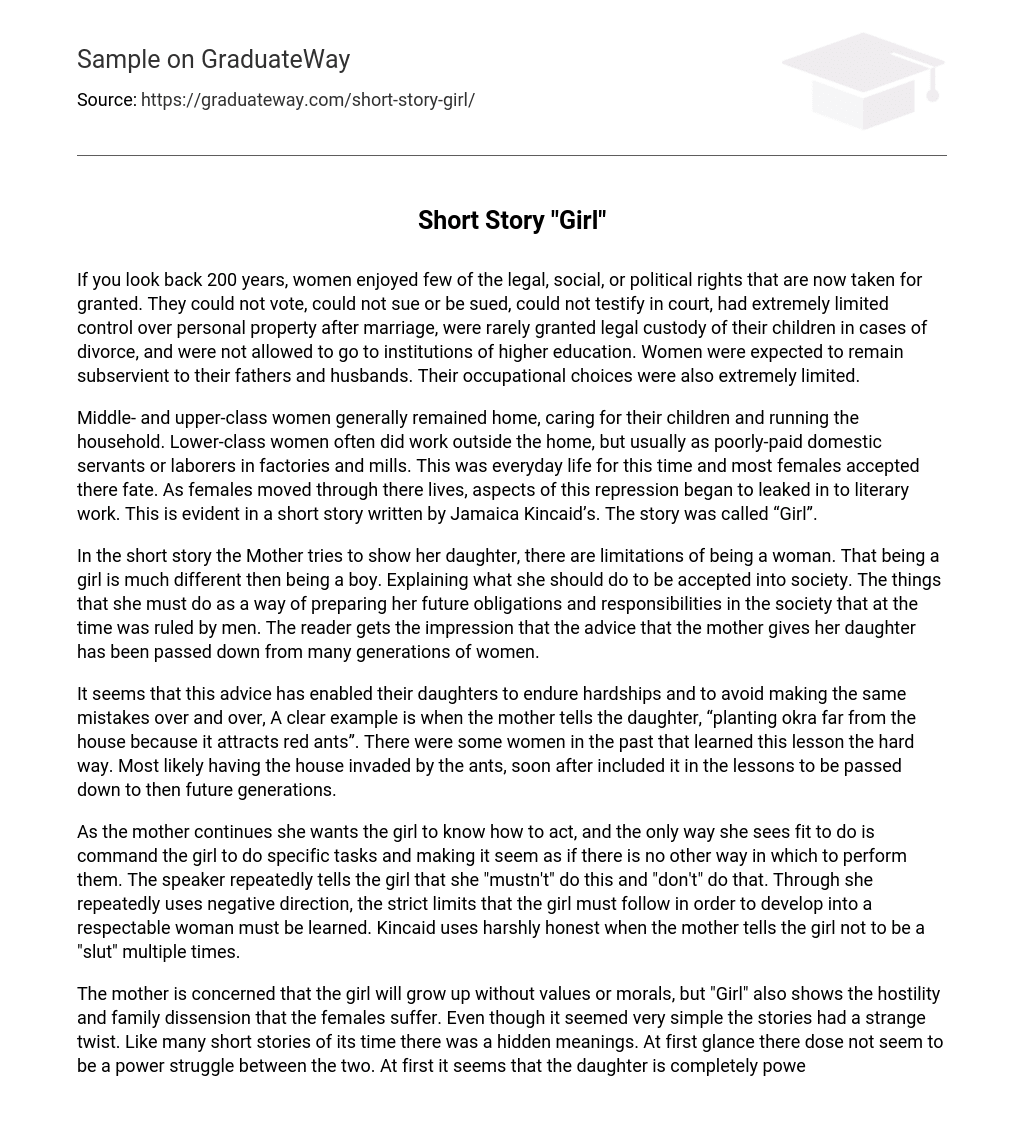If we go back two centuries, women had limited rights compared to their current status. They were prohibited from voting, accessing courts, or attending higher education institutions. Their control over personal property after marriage was also restricted, and they faced challenges in obtaining legal custody of their children during divorce proceedings. Additionally, they were expected to be submissive to their fathers and husbands while having a narrow range of occupation choices.
During this period, women from middle and upper classes typically remained at home to care for their children and handle household responsibilities. Conversely, women from lower classes often had jobs outside of their homes, although these positions were usually low-paying as domestic servants or factory and mill laborers. Embracing their circumstances, most females accepted these conditions as a normal part of their daily existence. As they progressed through life, certain aspects of this oppression began to influence the literature produced during this time. A notable illustration can be found in Jamaica Kincaid’s short story “Girl”.
The mother in the short story emphasizes the limitations and differences of being a woman compared to being a man. She guides her daughter on how to be accepted in society and prepares her for the future obligations and responsibilities, considering the societal dominance of men at that time. The advice passed down from generations of women is evident in the mother’s guidance to her daughter.
It appears that this advice has helped their daughters endure challenges and prevent repeating past mistakes. A specific instance is when the mother advises the daughter to “plant okra far from the house because it attracts red ants.” Some women in earlier times likely learned this lesson through personal experience, likely having their homes invaded by ants. They then included it as part of the wisdom passed down to future generations.
The mother desires to teach the girl proper conduct by instructing her to carry out specific tasks and implying that there are no alternatives. The speaker consistently advises the girl to refrain from certain actions. Although negative directions are heavily emphasized, the girl must abide by strict boundaries in order to become an honorable woman. Kincaid employs blunt honesty when the mother repeatedly warns the girl about being promiscuous.
The mother expresses concern about her daughter potentially lacking values or morals, yet “Girl” also illustrates the animosity and familial strife faced by the women in the family. Despite their simplicity, these stories possess a distinct twist and concealed messages akin to other short stories of that time period. Initially, there appears to be no power struggle between the two individuals. The daughter seems entirely powerless, merely able to heed her mother’s words without any ability to object. It is noteworthy that the daughter speaks only on two occasions throughout the entirety of the narrative.
The daughter has minimal speaking lines in the story, only saying phrases like “But I don’t sing benna on Sundays at all and never in Sunday school” and “But what if the baker won’t let me feel the bread”. Apart from these moments, she mostly listens, demonstrating her lack of power. In contrast, the mother holds complete control over their relationship and possesses all the power. She dictates to her daughter what actions to take, such as teaching her how to hem a dress to avoid appearing provocative. This not only provides guidance but also implies expected behavior for the daughter. By giving these instructions, the mother reveals her low opinion of her daughter. It is evident that she does not hold a high regard for her offspring. Although it is clear that the mother dominates, it remains uncertain why she feels compelled to enforce such strict rules upon her child’s life.
Maybe this is the moment when the daughter has full authority; she ultimately decides her own destiny. Through these two sentences, she demonstrates her rebellious character by resisting change and questioning possible outcomes. She rejects accepting the result. Ultimately, she has the power to mold her own fate. Despite the mother’s efforts to control her future, in “Girl,” she only acts as a moral guide for the daughter. It seems like a direct conversation between a mother and daughter.
Feminists have played a crucial role in advancing women’s progress by highlighting their distinct experiences within their families and exposing the inequities of the workplace. By presenting history through women’s perspectives, they have progressively shifted society’s perception of women. Literature frequently mirrors cultural beliefs and attitudes, encompassing the societal positions, roles, and expectations imposed on women throughout different eras. While we have made substantial advancements and now distribute responsibilities more evenly, literature will forever be influenced by temporal and societal transformations.





